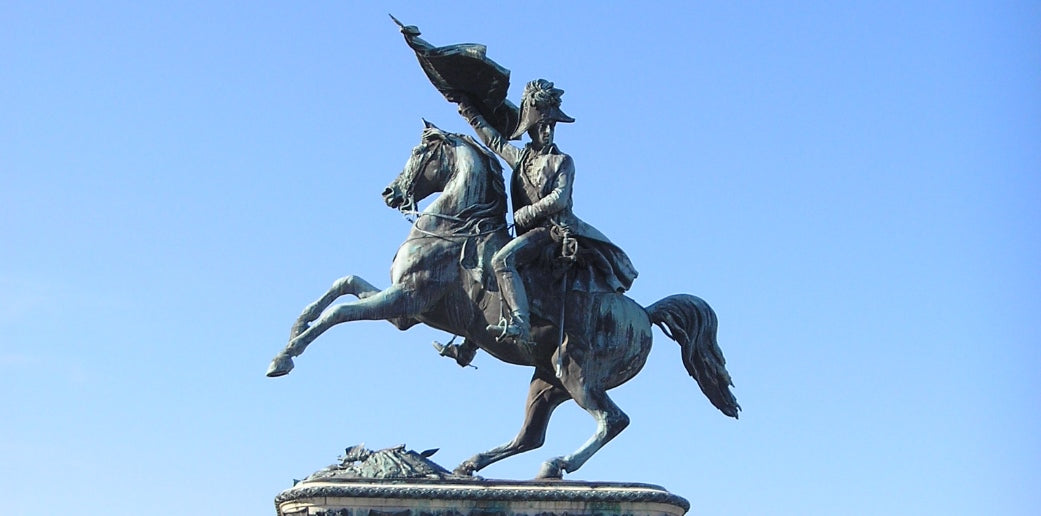Part 3 of our series focuses on Archduke Charles of Austria, the younger brother of Emperor Francis and the Austrian army's most gifted commander during the Napoleonic age.
Archduke Charles (Karl) of Austria, Duke of Teschen (1771-1847)
The generals of the Austrian Army during the Napoleonic Wars are often seen as cautious and unimaginative, often outthought and outfought by Napoleon. Archduke Charles of Austria is a rare exception to this rule. Charles was born in Tuscany in 1771, where his father Leopold ruled as Grand Duke. In 1790 Leopold succeeded his brother Joseph as Holy Roman Emperor but died in 1792, leaving the throne to his eldest son Francis II (later Francis I of Austria). As the emperor's younger brother, Charles found himself in high command in his twenties in contrast to the rest of the Austrian general staff, which prioritised seniority and experience over ability for officers who were not fortunate enough to be born into the imperial family.
Over the course of the French Revolutionary Wars, Charles proved to be the most successful Austrian general. Serving in Germany in 1796, Charles won a series of victories against Jourdan and Moreau, two of the French Republican Army's most talented commanders. Indeed, Charles's quick manoeuvring and aggressive tactics would have made him more at home in the French army. The success of the Austrians on the German front was in stark contrast to the Italian front, where the veteran Austrian general Dagobert von Wurmser was repeatedly outmanoeuvred by the young General Bonaparte. After the resumption of hostilities in 1799, Charles once again drove the French back behind the Rhine but Moreau's victory over Archduke John at Hohenlinden in December 1800 sealed the fate of the campaign.
Charles' popularity reached its height during this period, and in 1805 he was placed in command of the Austrian army in Italy. The Third Coalition allies (Austria, Britain, Russia) expected the main theatre of operations to be in Italy, but Napoleon's forces instead invaded Austria via southern Germany, forcing the capitulation of General Mack's army at Ulm before winning one of his greatest victories over a combined Austro-Russian force at Austerlitz. Meanwhile, Charles was defeated by Marshal Massena's smaller army at the Battle of Caldiero on 30 October.
In 1806, Charles, with his reputation still intact, was appointed commander-in-chief and responsible for the reorganisation of the Austrian Army. These efforts largely involved copying French innovations in organisation and tactics to create a more flexible and agile army. Charles' reform programme was not yet complete when Austria declared war against Napoleon in 1809. Charles opposed the war but nevertheless served as commander-in-chief of the Austrian forces, which performed considerably better than its previous incarnations. At the Battle of Aspern-Essling, Napoleon suffered his first defeat in a major battle at Charles's hands, with the Archduke personally leading his reserves to counter the French attack. Napoleon successfully withdrew his forces and would go on to win the decisive victory at Wagram, but Aspern cost him the life of Jean Lannes, one of his best commanders and closest friends.
Although he had been opposed to the war, Charles was held responsible for the defeat at Wagram and the failure of the 1809 campaign, and resigned all his military offices. When Austria joined the Sixth Coalition in 1813, Charles was not given a command. Instead, the supreme command of the allied armies fell to Karl von Schwarzenberg, a competent if not particularly brilliant general, who succeeded in leading the allies to victory over Napoleon in March 1814. Archduke Charles remained in retirement for the rest of his life, dying at the age of 75 in 1847. In 1860, an equestrian statue of Charles was erected at the Heldenplatz (Heroes' Square) in front of the Hofburg Palace in Vienna.



Share and get 15% off!
Simply share this product on one of the following social networks and you will unlock 15% off!